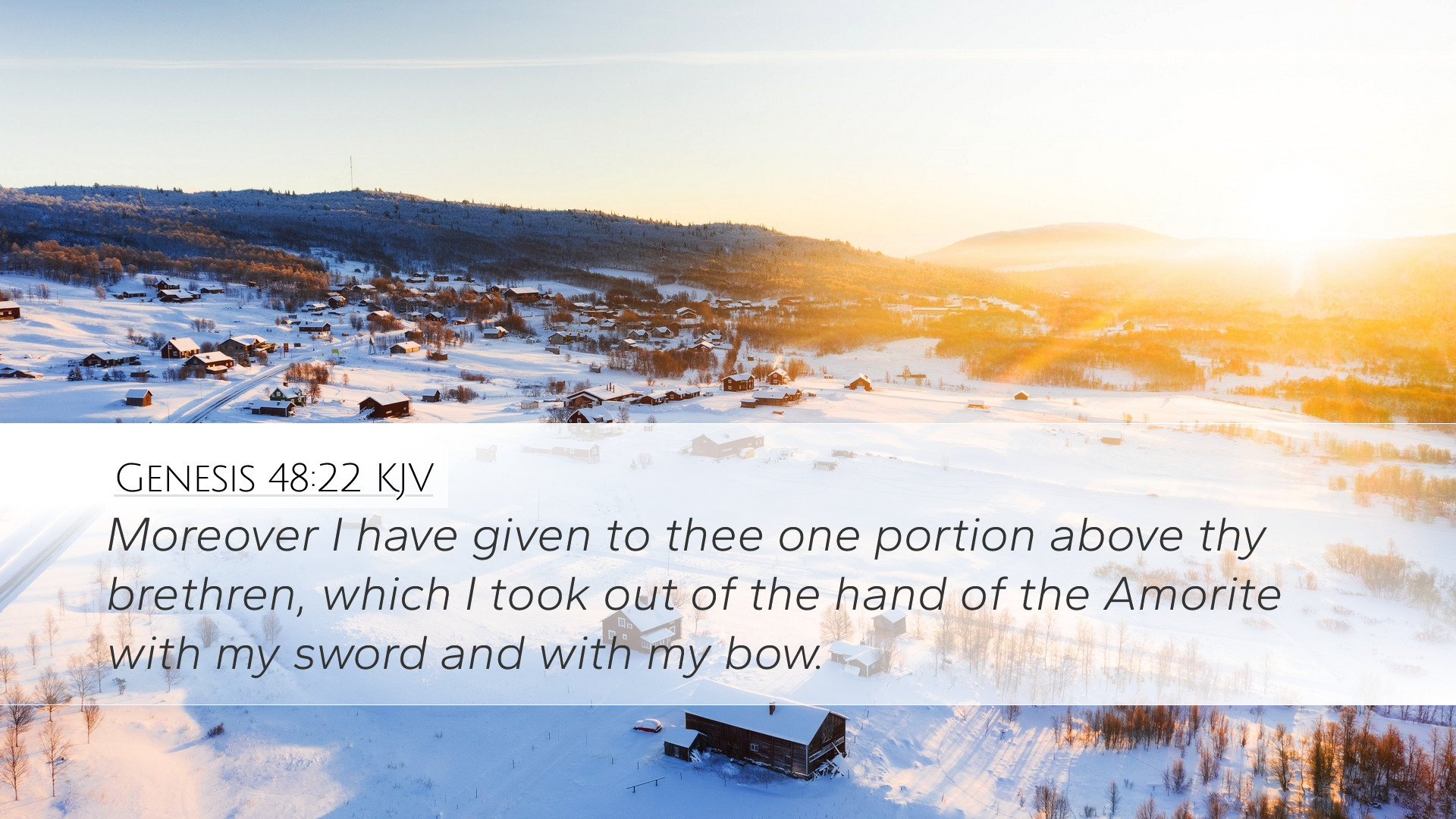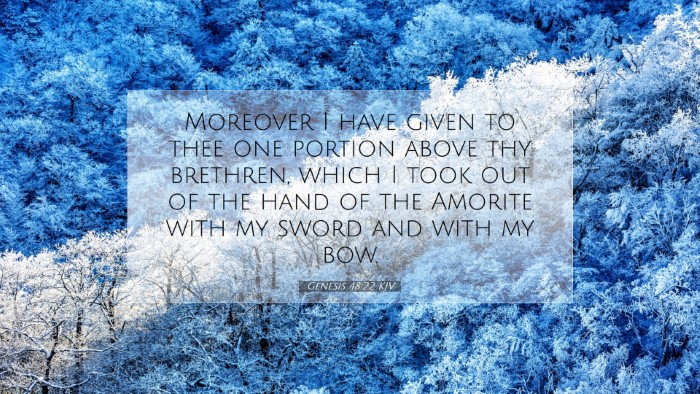Commentary on Genesis 48:22
Genesis 48:22 states: "Moreover I have given to you one portion above your brethren, which I took out of the hand of the Amorite with my sword and with my bow."
Contextual Overview
In this passage, Jacob is addressing Joseph, blessed with the privilege of being the father of two tribes in Israel. This moment occurs after Jacob has adopted Joseph’s sons, Ephraim and Manasseh, thereby elevating them to a status equivalent to that of Jacob’s own sons. This is significant in the broader narrative of the Genesis patriarchal blessings.
Theological Significance
The phrase "one portion above your brethren" is critical as it signifies God’s favor and the special role Joseph’s lineage will play in the history of Israel. Commentators frequently reflect on the themes of inheritance, divine providence, and God’s redemptive purposes.
Insights from Albert Barnes
Barnes explicates that this "portion" refers specifically to the rich inheritance that is allotted to Joseph’s descendants, distinguishing them among the tribes of Israel. He notes this was a tangible sign of God's favor and provision, tying the inheritance in the land to the history of conquest, emphasizing how Jacob acknowledges God's assistance in past struggles against the Amorites.
Insights from Matthew Henry
Matthew Henry emphasizes that Jacob's blessing is an act of faith, demonstrating Jacob's recognition that God's plans transcend human expectations and norms. Henry points out that the mention of the Amorite conquest serves as a reminder of God's faithfulness in delivering the Promised Land to His people. This underscores the idea that victories in spiritual battles will inevitably translate to tangible blessings.
Insights from Adam Clarke
Clarke highlights the historical aspects underpinning this blessing. He notes that the "portion" not only alludes to land but also to a spiritual legacy, indicating that the heritage of faith and the covenant made with patriarchs would continue through Joseph. Clarke dives into the semantics of the term ‘portion’, noting its deep roots within Jewish inheritance traditions.
Unity in Diversity
The story of Ephraim and Manasseh is a testament to unity amid diversity within the tribe of Israel. The elevation of Joseph's position among his brothers represents the broader biblical theme where the least expected are chosen for God’s great purposes. This affirms God’s sovereignty as He selects individuals and groups for leadership according to His divine plan.
Implications for Modern Readers
This verse invites all believers to reflect on their own spiritual inheritance. By being adopted into God's family through Christ, similar blessings and portions are promised to the followers of Jesus today, making Jacob's words relevant for contemporary believers.
Conclusions for Theologians and Pastors
For pastors and theologians, this commentary serves several functions:
- Interpretive Lens: The verse can be viewed through the lens of God’s redemptive history, establishing a framework to understand Israel's significance in God’s plan.
- Pastoral Application: Creating sermons around the concept of spiritual inheritance, emphasizing divine favor and blessings that surpass human understanding.
- Encouragement for Struggles: Encouraging congregations by recalling that God provides for His people even in times of struggle, much like Jacob's reflection on past victories.
Final Reflection
In summary, Genesis 48:22 not only encapsulates individual blessings but is also a profound reminder of God's overarching purpose for His people. It encourages believers to recognize the unique part they play in the larger narrative of God's redemptive work, fostering hope and understanding among all who study and teach the scriptures.


